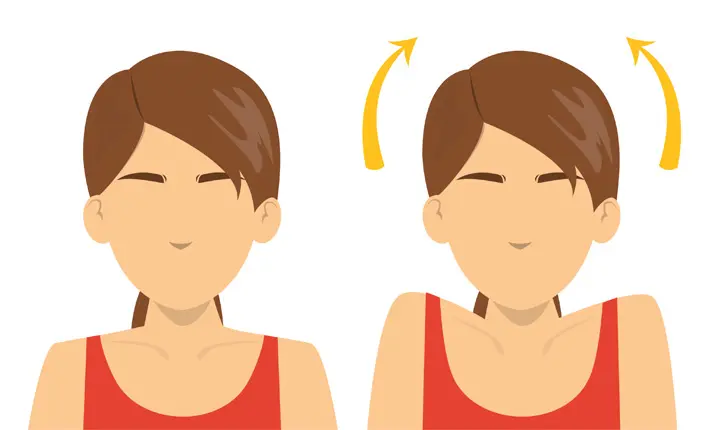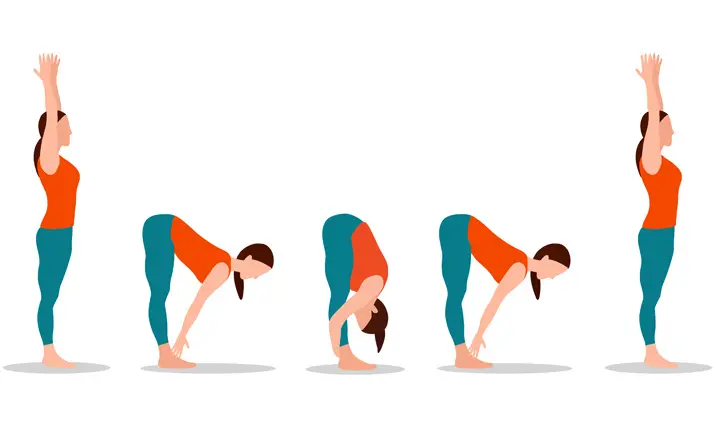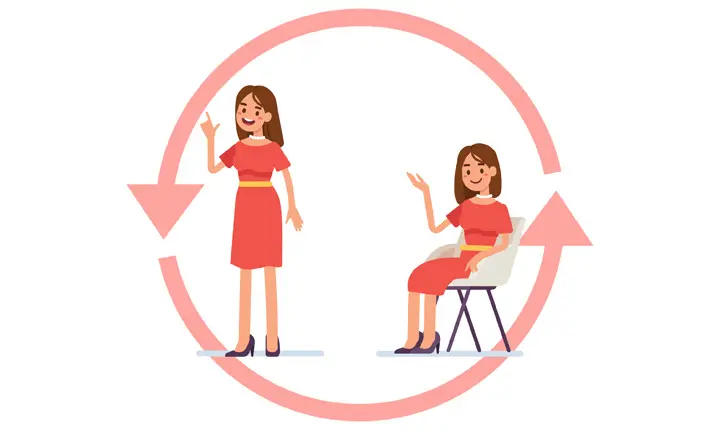-
-
Featured Care Areas


Source: Shutterstock
5 Easy Desk Stretches to Try
Last updated: Friday, November 5, 2021 | 4 min reading time
Many of us spend 7 – 10 hours a day sitting at our desks. These 5 simple stretches can help us keep the aches, pains, and repetitive strains at bay.
You might think that physically demanding jobs, such as those in construction or manufacturing pose the highest risks of bodily injury. In truth, desk-bound jobs can be just as risky. This is because sitting at a desk all day can lead to a host of problems, many of which you would be familiar with:
- Poor posture
- Neck pain
- Back pain
- Weight gain, leading to obesity
- Circulatory problems
- Carpal tunnel syndrome (discomfort and pain in your fingers)
- Repetitive strain injuries
- Cardiovascular disease
- Stress
The good news is incorporating some stretching and movement into your day can help reduce the likelihood of you developing any of the problems above.
Learn more about physical wellness and how to take care of your health and the healthcare needs of your loved ones with Gleneagles Hospital.
In the meantime, to combat the effects of a sedentary day job, here are 5 simple stretches you can do at your desk.
1. Arm and shoulder stretches
Sitting at a desk and straining to look at a computer screen can leave you holding tension in your shoulders and upper body. Simple shoulder shrugs can help you to release this tension and increase mobility.
- Simply lift your shoulders towards your ears
- Hold for a few seconds
- Let your shoulders fall slowly
Perform these exercises slowly and gently without being too forceful with the movements. Shrug and release slowly to avoid jarring your shoulder.
2. Torso stretches and twists
Back pain is a major complaint amongst desk-bound workers. Hunching over paperwork or your keyboard with poor posture can lead to lower and upper back pain and stiffness. A torso twist exercise can help stretch out constricted muscles and relieve the niggling aches.
- Face forwards in your chair with your feet on the ground and back straight
- Twist your body to one side and hold on to the back of your chair
- Keep your feet and hips facing forwards
- Hold this pose for up to 30 seconds
- Repeat to the other side
- Repeat both sides as needed
Remember not to twist too violently. Perform this exercise slowly and smoothly and don’t push yourself beyond your natural range of motion.
3. Head to toe stretches
It’s important to get up regularly throughout the day and stretch your whole body. Sitting down for long periods without moving can leave you at risk of thrombosis. Set an hourly reminder on your phone or computer to stand up and do a top to toe stretch and a quick walking circuit of the room.
- Stand straight and lift your arms above your head
- Stretch your arms towards the ceiling and hold for a few seconds
- Slowly lower your arms
- Bend forward and reach your arms towards your feet
- Relax into the position
- Recover slowly
- Repeat as needed
You can also incorporate some deep breaths with this stretch for an added sense of calm.
4. Hands, wrists and ankles
Typing at a keyboard regularly greatly increases your risk of carpal tunnel syndrome, a painful nerve condition in your hands and fingers. Take some time out of the day to stretch out your extremities.
- Hold both hands out in front of you and slowly circle both wrists outwards
- Repeat circling wrists inwards
- Clench your hands into fists and release
- Repeat several times
- Lift your feet off the floor and slowly circle both ankles outwards
- Repeat circling ankles inwards
You can also give yourself a short hand and wrist massage to encourage circulation and ease any strain.
5. Standing and sitting
It can be hard to fit any cardiovascular exercise into a day of work but standing and sitting is a good compromise.
- Start sitting up straight with good posture
- Engage your core muscles and stand up
- Sit back down again
- Repeat multiple times
- Go at the pace you’re comfortable with
This exercise helps get the blood flowing around your body and loosens tension around your lower back and hips.
Your work environment
As well as incorporating simple stretches into your daily routine, make sure your work environment is a healthy place to be. Opt for chairs which offer good support, preferably with ergonomic contours and arm rests. Where possible, consider a seated desk that can be converted to a standing one because being on your feet for some part of the workday can be great for your health.
Drink plenty of water throughout the day to stay hydrated. Take regular breaks to move around, and use your lunch hour to take a breather from work. Looking after your body at work not only helps you fight fatigue, but it will also let your better enjoy your evenings and weekends to the fullest.
Consult a doctor if you are already experiencing any neck or back pain. A physiotherapist can also advise on how to do these exercises and help prevent and manage your symptoms so they don’t get worse.
Learn more about the rehabilitation support at Gleneagles Hospital and how its multidisciplinary team of specialists can help manage a range of medical conditions or injuries.
(1 March 2017) Stretches to Do at Work Every Day. Retrieved 11 July 2019 from https://www.healthline.com/health/deskercise
(27 May 2019) Stretching Exercises at Your Desk: 12 Simple Tips. Retrieved 11 July 2019 from https://www.webmd.com/fitness-exercise/features/stretching-exercises-at-your-desk-12-simple-tips#2
(14 July 2019) Desk stretches to ease aches and pains. Retrieved 11 July 2019 from https://www.bupa.co.uk/newsroom/ourviews/desk-stretches
(27 May 2019) Stretching Exercises at Your Desk: 12 Simple Tips. Retrieved 11 July 2019 from https://www.webmd.com/fitness-exercise/features/stretching-exercises-at-your-desk-12-simple-tips#2
(14 July 2019) Desk stretches to ease aches and pains. Retrieved 11 July 2019 from https://www.bupa.co.uk/newsroom/ourviews/desk-stretches











